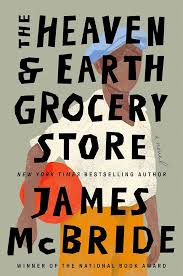Chapter 6: Challah
byChapter 6: Challah opens during a period of fragile recovery. Chona’s illness, once alarming and debilitating, begins to recede. Her fever subsides, and strength returns slowly, thanks to rest, care from Addie, and the presence of Moshe, who watches over her like a guardian. Though a doctor suggests permanent mobility issues, Moshe finds joy simply in seeing her animated again. To him, the specifics of her recovery matter less than the miracle of it. In his eyes, her voice, her determination to run the store again, and her occasional complaints all signal life reasserting itself. That spark of resilience reminds Moshe of why he loves her—she represents not only strength but the soul of the home he’s trying to build in this uncertain new land.
While Chona’s strength returns, another presence begins quietly shaping events—Malachi, the mystifying new baker on Chicken Hill. Each day, he delivers a loaf of homemade challah to Moshe, insisting it carries healing properties. Moshe accepts the bread out of politeness, not taste; its texture is thick, its flavor off-putting, and its look amateurish. Yet despite its lack of culinary merit, the challah seems to radiate intention, and Moshe finds himself unable to reject it outright. When the town’s nuisance dog, who once harassed Moshe on nightly walks, peacefully consumes the loaf and disappears, Moshe is taken aback. It becomes easier to believe that the bread holds a kind of strange power—not because of what it is, but because of who baked it. That possibility—that intention and spirit might infuse the mundane with the extraordinary—quietly stirs something long buried inside Moshe.
Though Moshe is skeptical of Malachi’s ability as a baker, he becomes increasingly drawn to the man’s sense of wonder. Malachi is no ordinary immigrant trying to blend in—he lives out loud, with a frayed tallit, a crowded apartment of odd collectibles, and a deep reverence for tradition. His lack of polish is offset by boundless curiosity. He’s unbothered by American norms, choosing instead to cherish objects like a worn prayer book or a flour-dusted rolling pin with the reverence others give to heirlooms. Moshe, trying hard to embrace modern America, is puzzled but enchanted by this contrast. Malachi’s refusal to separate faith from daily life seems old-fashioned, yet oddly timeless. There’s something elemental and restorative in the way he connects prayer, bread, and life itself.
Their growing friendship opens a door to deeper, more uncomfortable truths. Malachi often speaks in riddles, but they cut to the bone. One such moment comes when he quietly challenges Moshe’s complacency about race, hinting that true identity means embracing all of oneself, not just the convenient parts. Malachi admires the Black workers’ unity, especially a boy helping clean the dance hall—someone whose presence triggers Moshe’s own memories of childhood hunger in Romania. It is that confrontation with the past—his fear, his flight, his own pain—that lies at the heart of Moshe’s dislike for challah. The bread, like Malachi, reminds him of things buried deep: starvation, war, and survival.
Malachi’s spiritual perspective adds a layer of meaning to what seems ordinary. His belief that bread is part of “the fullness of the earth,” echoing Psalm 24, reframes food as sacred. Historically, challah has held deep symbolic meaning for Jews—braided to signify love, unity, and tradition, and eaten on Sabbath as a symbol of God’s provision. In Eastern European shtetls, baking challah was not just about nourishment but about preserving identity in the face of persecution. For immigrants like Malachi, this symbolism isn’t lost. His insistence on baking—even poorly—is not about commerce, but about reclaiming something stolen by history. Though his bakery fails, Malachi succeeds in reawakening that connection, even in someone like Moshe who had tried to forget.
Moshe, proud of his American success and wary of the past, feels increasingly unmoored by Malachi’s philosophical provocations. When Malachi states that “we are integrating into a burning house,” it jolts Moshe’s belief in American progress. The statement is layered—Malachi sees a country still struggling with its soul, its treatment of the poor and marginalized, and its obsession with status over substance. Though Moshe has found some comfort in this new land, Malachi sees a system that threatens to consume its newcomers unless they remember who they are. These insights become harder to ignore when Malachi quietly exits Moshe’s life, asking him to sell the bakery and forward any proceeds. It’s a symbolic act, one that leaves Moshe both confused and haunted.
What remains for Moshe isn’t just the failed bakery or the terrible bread, but a question of identity. What does it mean to be a Jew in America? To be a friend? A decent man? Malachi’s sudden departure forces him to wrestle with more than business—he must now examine the cracks in his own beliefs. For readers, the deeper value in this chapter lies in its portrayal of immigration, faith, and the quiet resistance of staying true to tradition in a world that encourages forgetting. In a time when many Jewish immigrants abandoned their old ways for assimilation, Malachi clung to them with reverence, showing that cultural survival isn’t always about thriving—it’s often about remembering.


